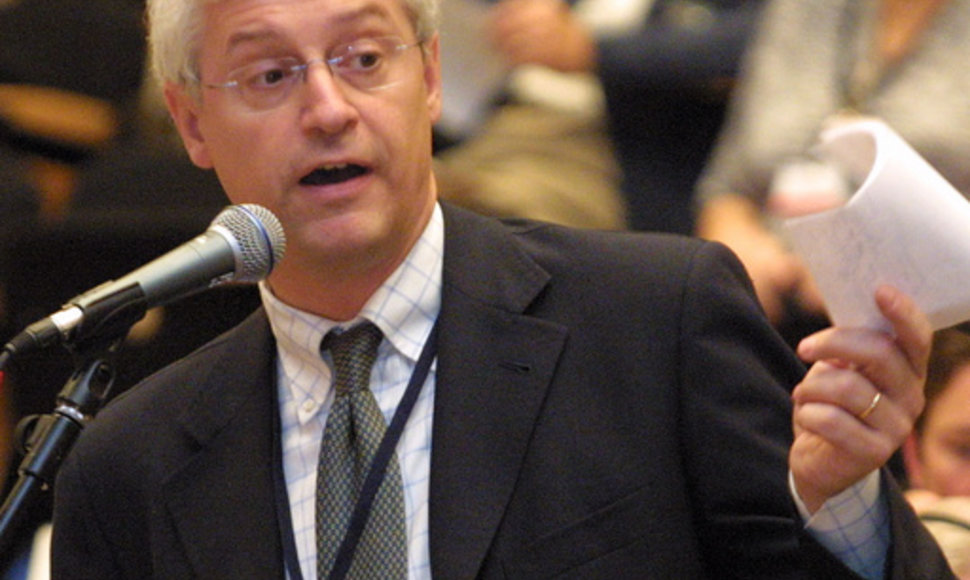"The European Commission plans to put the text of the regulation for the setting up of a European public prosecutor's office next June. By the second half of next year, Lithuania will have the Presidency of the Council, and will have an important role to play," Giovanni Kessler said in an interview with BNS.
The visiting EU official underlined that a European prosecutor's office would contribute to investigating "all crimes which affect the financial interests of the European Union", and that's especially important during the crisis. Kessler discussed the initiative with the heads of the Lithuanian Prosecutor General's Office and the Ministry of Justice.
"We have to protect the money of EU taxpayers, especially in this time of the crisis. Economic crimes, like smuggling that Lithuania suffers, are transnational crimes by nature, affect several member states," the OLAF head said.
"In order to discover and dismantle big transnational chains of distribution of illegal cigarettes or cartels of criminals which are behind these crimes like smuggling or big economic crimes or frauds, we need a transnational approach, an integrated European approach", Kessler said.
In his words, prosecutors from all member states would work at the central headquarters of a European prosecutor general's office, and the location of the headquarters is still under consideration.
Following the EC's proposal, it will need to receive backing from the European Parliament and all member states. Kessler acknowledged that several member states are skeptical.
"There are member states which expressed interest but want to see some details. I would say this is the majority. There are one or two member states which are of a skeptical position, which are on skeptical positions on almost all justice-related issues when it comes to the European Union," Kessler said.
Sources have told BNS that the UK, where euro-skepticism has been strong since it joined the EU four decades ago, is one of the member states that are not inclined to back the establishment of a European prosecutor's office.
Meanwhile Kessler said by setting up a European prosecutor's office, national governments would demonstrate their determination to fight embezzlement.
"Once you ask your voters, your citizens to take painful cuts in the public finances, you have to be able, on the other hand, to say 'what we ask you is in order to preserve the public money but we will protect it from corruption significantly and from fraud and fraudsters with significant measures'," the OLAF head said.
The establishment of a European prosecutor's office is stipulated in the Treaty of Lisbon, which came into force in 2009. The treaty says that its establishment must be done by unanimity in the Council and with the consent of the European Parliament. If the Council cannot reach unanimity, a group of at least nine member states may proceed to establish enhanced cooperation between them.
Lithuania will take over the EU Presidency in the second half of 2013. The Presidency has a duty to chair working group meeting of representatives of all EU member states for the discussion of EU affairs.
Around 3,000 meetings in Brussels and Luxembourg are planned during the Lithuanian EU Presidency, and around 180 meetings will be held in Lithuania.












